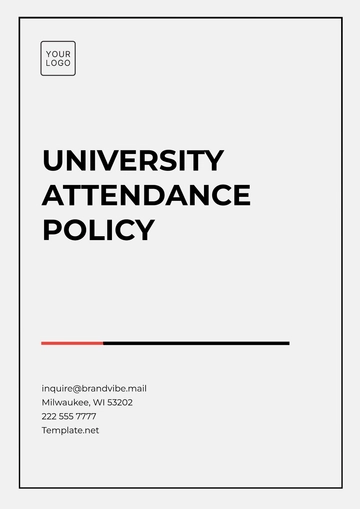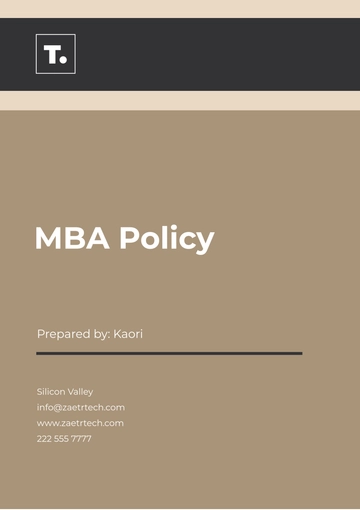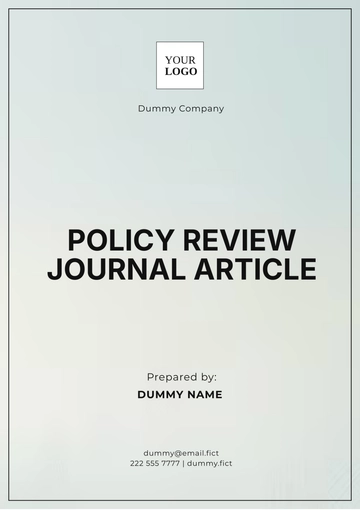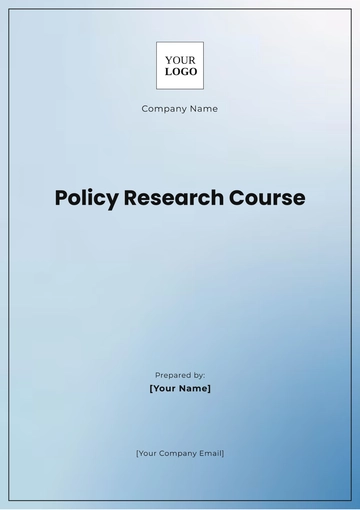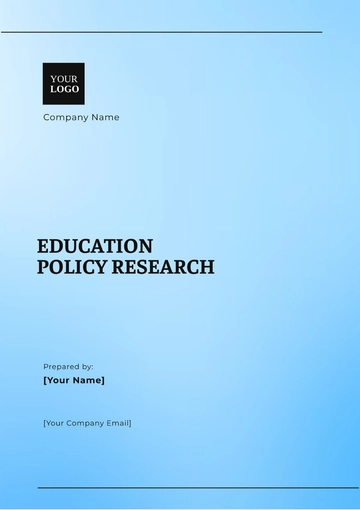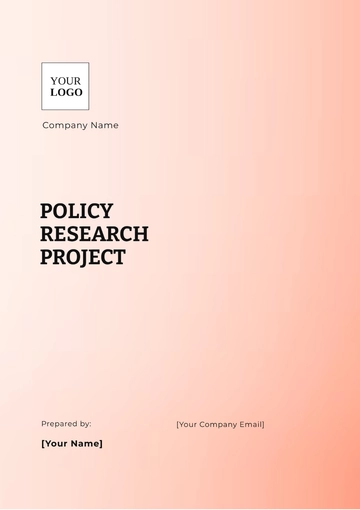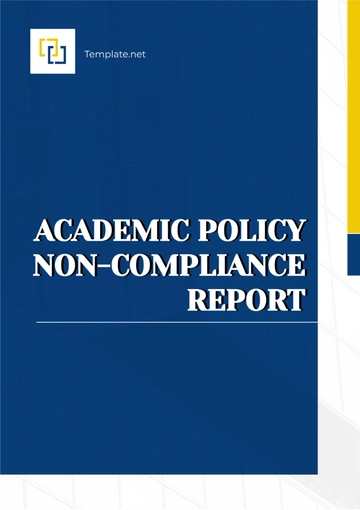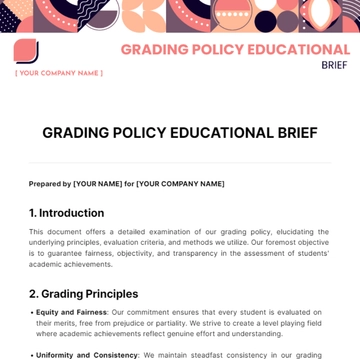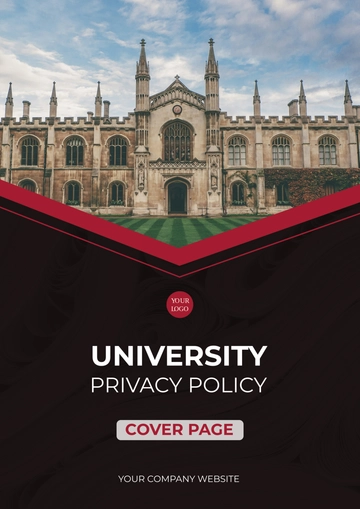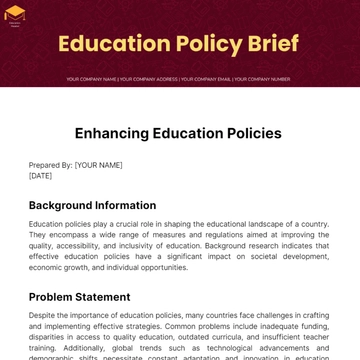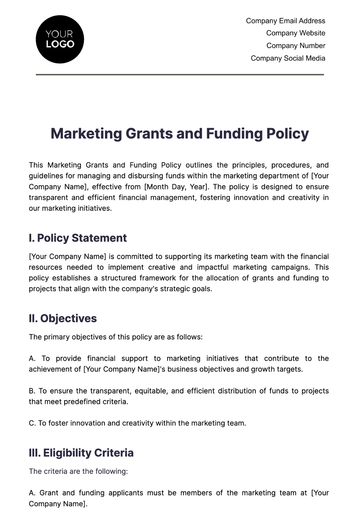Free Education Policy Brief
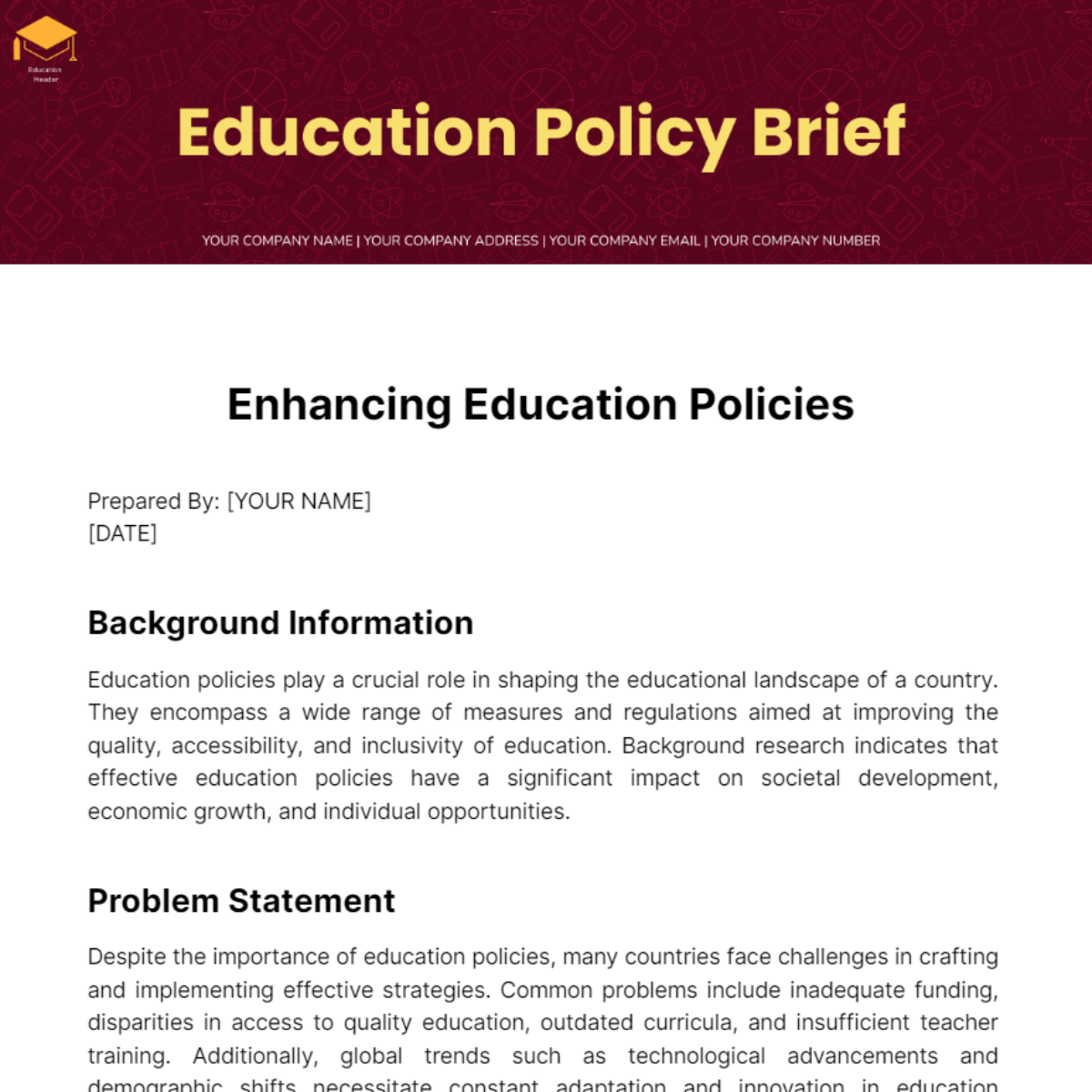
Prepared By: [YOUR NAME]
[DATE]
Background Information
Education policies play a crucial role in shaping the educational landscape of a country. They encompass a wide range of measures and regulations aimed at improving the quality, accessibility, and inclusivity of education. Background research indicates that effective education policies have a significant impact on societal development, economic growth, and individual opportunities.
Problem Statement
Despite the importance of education policies, many countries face challenges in crafting and implementing effective strategies. Common problems include inadequate funding, disparities in access to quality education, outdated curricula, and insufficient teacher training. Additionally, global trends such as technological advancements and demographic shifts necessitate constant adaptation and innovation in education policies.
Objectives
The primary objective of this education policy is to analyze existing challenges in the education policies of our school and propose recommendations for improvement.
Specific objectives include:
Identifying key issues and gaps in current education policies.
Examining successful education policy models from other regions.
Providing evidence-based recommendations to address identified challenges.
Promoting dialogue and collaboration among stakeholders for policy implementation.
Key Findings
Through comprehensive research and analysis, the following key findings have emerged:
Key Findings | Description |
|---|---|
| Insufficient funding for education leads to resource constraints, affecting infrastructure, teacher salaries, and learning materials. |
| Disparities in access to education persist, particularly for marginalized communities, rural areas, and individuals with disabilities. |
| Outdated curricula fail to meet the demands of the modern workforce, lacking emphasis on critical thinking, digital literacy, and vocational skills. |
| Inadequate teacher training and support hinder the quality of instruction and student engagement. |
| The integration of technology in education is uneven, with disparities in access and digital literacy skills among students and teachers. |
Recommendations
Based on the identified challenges and key findings, the following recommendations are proposed:
Recommendation | Description |
|---|---|
| Insufficient funding for education leads to resource constraints, affecting infrastructure, teacher salaries, and learning materials. |
| Disparities in access to education persist, particularly for marginalized communities, rural areas, and individuals with disabilities. |
| Outdated curricula fail to meet the demands of the modern workforce, lacking emphasis on critical thinking, digital literacy, and vocational skills. |
| Inadequate teacher training and support hinder the quality of instruction and student engagement. |
| The integration of technology in education is uneven, with disparities in access and digital literacy skills among students and teachers |
Conclusion
Education policies are essential but face challenges like insufficient funding, unequal access, and outdated curricula. Addressing these challenges, through increased funding, curriculum reform, and technology integration, is key to improving education and preparing students for the 51st century. The implementation of these recommendations can lead to a more inclusive and effective educational system.
- 100% Customizable, free editor
- Access 1 Million+ Templates, photo’s & graphics
- Download or share as a template
- Click and replace photos, graphics, text, backgrounds
- Resize, crop, AI write & more
- Access advanced editor
Introducing the Education Policy Brief Template from Template.net! Crafted for educators, policymakers, and researchers, this editable and customizable tool streamlines the process of drafting concise, informative policy briefs. Tailor content effortlessly with our Ai Editor Tool, ensuring your message is clear and impactful. Elevate your advocacy with this essential resource. Get started today!
You may also like
- HR Policy
- Restaurant Policy
- Company Policy
- Accounting Policies and Procedures
- Website Policy
- Privacy Policy
- Safety Policy
- School Policy
- IT and Software Policy
- Law Firm Policy
- Construction Policy
- Interior Design Policy
- Travel Agency Policy
- Education Academic Policy
- Security Policy
- Real Estate Policy
- Expense Policy
- Software Policy
